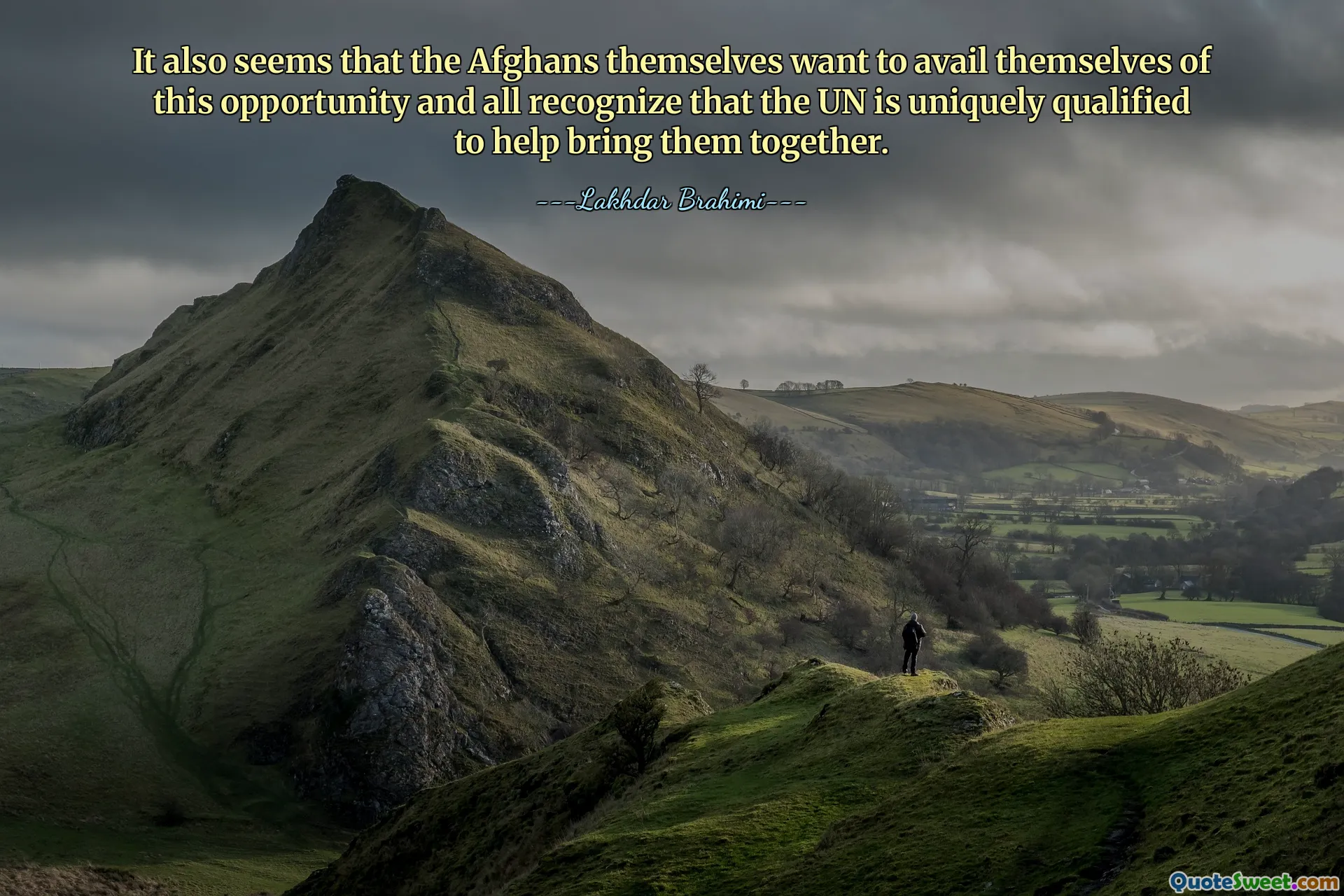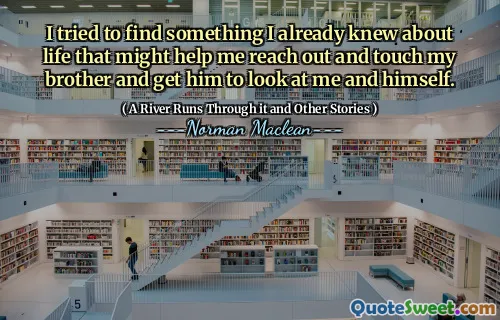
It also seems that the Afghans themselves want to avail themselves of this opportunity and all recognize that the UN is uniquely qualified to help bring them together.
This quote highlights a significant moment of hope and collective aspiration among the Afghan people. It suggests that despite longstanding conflicts and political challenges, there is a shared recognition within Afghanistan of the importance of unity and the potential role of international organizations, specifically the United Nations, in facilitating reconciliation. The emphasis on the Afghans' desire to seize opportunities underscores their agency and willingness to work towards peace and stability. This reflects a fundamental truth in international conflict resolution: sustainable peace often hinges on the active participation and consent of the affected populations themselves.
The statement also implicitly acknowledges the limitations of external interventions without local cooperation. By recognizing the UN’s unique capacity to bring different factions together, it places confidence in multilateral efforts rather than unilateral actions. This is especially pertinent in regions where history has shown that lasting peace requires internally driven solutions, supported but not dictated by international actors.
Moreover, this quote encapsulates a pivotal moment of optimism. It reinforces the idea that even in situations marred by division, there exists an internal desire for unity, driven by hope for a better future. This optimism is critical for inspiring continued diplomatic efforts and for building trust among disparate groups.
In a broader sense, such statements remind us that peace-building is a complex process rooted in mutual understanding, cooperation, and the recognition of shared interests. It calls attention to the crucial role of organizations like the UN in providing a neutral platform for dialogue and negotiation, helping to facilitate this internal will for peace into concrete action. Ultimately, this quote serves as a reminder that peace is possible when the affected people believe in their capacity to forge a new path forward with international solidarity as support, rather than dominance.







